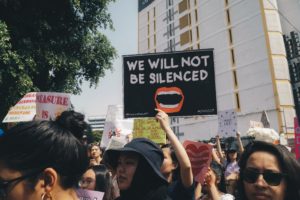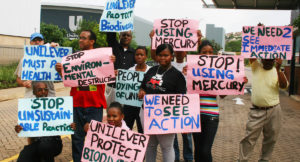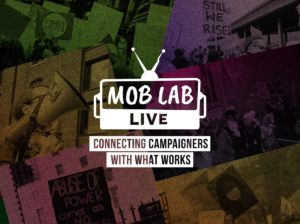Anna Keenan of the Volunteering Lab facilitated a session at last week’s Digital Mobilisation Skillshare to look at different ways that Greenpeace staff have supported volunteer-led campaigning and community action, and the kind of help those campaigns need to thrive.
See below for summaries of three of the examples participants talked about in the session, and read the detailed case studies to see how each campaign uses the four ingredients of people-powered campaigns.
Volunteer-led campaign stops new nuclear power stations
Switzerland’s “Particle Accelerator” and “People Power Surge against Nuclear” (2007–)
(Teilchenbeschleuniger und Menschenstrom gegen Atom)
Following an in-depth training in open campaigning tactics and techniques, provided by Greenpeace Switzerland, volunteers developed their own campaign around the Swiss government’s proposals to develop new nuclear facilities.
Over 20,000 people attended the second demonstration organised by the newly-formed “People-power surge against nuclear,” contributing to the government’s decision to drop the proposals.
This was far more than Greenpeace Switzerland could have hoped to mobilise via their existing networks and resources – and it all started with a risk-taking decision to invest deeply in volunteer training without knowing where it would lead.
Read more about this campaign.
Community-led flotilla stops oil exploration
New Zealand’s “Stop Deep Sea Oil Flotilla” (20111)
In response to a call for opposition to deep sea drilling by New Zealand indigenous group the East Cape Iwi te Whanau a Apanui, Greenpeace helped organize a flotilla which set sail from Auckland in March 2011 for the East Cape to confront the Brazilian oil giant Petrobras as it began seismic testing.
As a result, new partnerships and a broader coalition of action on the deep sea oil campaign emerged and have continued to grow and deepen to this day.
A joint flotilla, with boats and crew from all over New Zealand, including Greenpeace staff and volunteers, and an Iwi fishing vessel, congregated in the test zone. The flotilla disrupted Petrobras’ oil exploration to such an extent that the New Zealand Government deployed its navy, air force and police to monitor, intimidate and ultimately arrest Elvis Teddy, captain of the tribe’s fishing vessel. Petrobras has since said it no longer plans to drill in New Zealand waters.
Working together with the local community and other participants made the campaign against deep sea drilling much broader than a Greenpeace issue, and forged lasting relationships between the local people and the organisation.
Read more about this campaign.
Committed campaigner flips company to FSC certified patio furniture
Tropical hardwood in patio furniture (2002)
When a committed Greenpeace volunteer campaigner approached Greenpeace International about the use of unsustainable hardwood in patio furniture by a small Swedish company, the organisation didn’t have resources to take up the issue directly.
But the members of an online community, run by Greenpeace International and known as the “CyberCenter,” offered insights and ideas to allow her to take up the issue independently and persuade the company to switch to FSC certified hardwood.
A small amount of support and input enabled a committed supporter to act independently and win her campaign.




